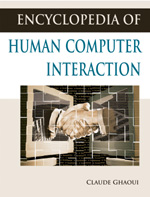
The Spring 2007 issue of the Modern Language Journal is out. Articles include:
– Literature, the Interpretive Mode, and Novice Learners by V.M Scott et al
– A Linguistic Analysis of Simplified and Authentic Texts by S. Crossley et al
– Carnival in a Mainstream Kindergarten Classroom: A Bakhtinian Analysis of Second Language Learners’ Off-Task Behaviors by A. DaSilva Iddings and S. McCafferty
– A Child’s Development of Interactional Competence in a Swedish L2 Classroom by A. Cekaite
– Foreign Language Pedagogical Knowledge: Toward a Developmental Theory of Beginning Teacher Practices by J. Watzke
– The Development of Practices for Action in Classroom Dyadic Interaction: Focus on Task Openings by J. Hellermann
– Radical Awareness and Word Acquisition Among Nonnative Learners of Chinese by H. Shen and C. Ke
UBC Library has access to this journal online through Blackwell-Synergy.


 including articles, theses, books, preprints, abstracts, conference proceedings, and technical reports. In the
including articles, theses, books, preprints, abstracts, conference proceedings, and technical reports. In the 

